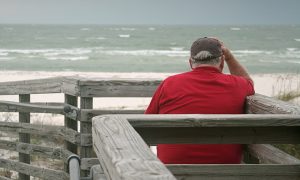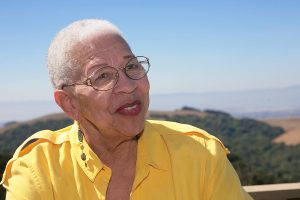They were kings when we were in diapers.
They have seen more than we can ever imagine.
Many of the them fought to keep America safe during World War II.
They paved the road so we could live fruitful lives.
They are 12% of the US population. They are the elderly. Yesterday’s heroes.
However, over the years I’ve seen a rise in poor self-image and self-esteem among seniors. This made me wonder… are we, indirectly, making them feel expendable?
The answer may be yes, and a lot may have to do with our current perceptions toward the elderly.
Of course, there are also many other contributing factors such as the rise of medical costs, Medicare and Medicaid cuts, and a poor economy. But for this article, I will focus on youth’s attitudes towards seniors.
Many of them are a result of media stereotypes, especially in movies, that were influenced by the booming industrial economy after World War II.
The new youth culture, influenced by Hollywood rebels like James Dean and Marlon Brando, favored independence and smaller family units. The older person was no longer seen as useful, but rather a burden for the family.
In addition, the elderly were seen as unwilling to embrace new ideas, slow, undeserving of work, and societal expendables.
The aging were gradually treated as second class citizens. Today not only are they seen as unable to work, the perception is that they should also be devoid of human rights such as falling in love, or the unthinkable, being sexually active. To many, the elderly are physically unappealing and undeserving of these behaviors. For them breaking this social norm results in labeling such as, “old pervert” or “dirty old man.”
In other words, they have lost the right to work, fall in love or have sex with a loved one.
But the worst part of all this, is that many older people do believe that they are expendable. It is not uncommon to find an older person describe himself as an “old fart” or “old geezer.”
I believe that these perceptions are one of the reasons why depression in the elderly is disproportionally high.
In fact, the rate of suicide in people age 65 and older is higher than that of the general population. According to the CDC, seniors accounted for 16 percent of suicide deaths in 2004.
So are they really useless?
 Of course not, they are knowledgeable about worldly events. They have been around far longer than many of us and still have a lot to teach us.
Of course not, they are knowledgeable about worldly events. They have been around far longer than many of us and still have a lot to teach us.
They can also gives us a few tips on what it is like to become old, and help us cope with our fear of aging. After all, we are next.
The elderly also participate in community events, vote and many try to carry out life just like us younger folks, with the same basic needs and desires.
So what can we do?
Simple, there is one way to achieve this goal that far surpasses, in my opinion, any medical breakthrough known to man.
And it’s not just love…
It’s appreciation, family closeness and feeling valued.
I will give you an example. The other day I saw a show on National Geographic about an Amazonian tribe. The expeditioners investigated the members and met with a few of the elderly, which were well into their 80’s.
They were still wearing their warrior apparel and they greeted them very respectfully. What caught my eye is that they seemed to be in excellent health.
That is right. No doctors. No medical assistance. Living in the jungle and living to be 80!
What is more, you have heard of people living beyond 100.
So what is their secret? Positive elderly perception by younger generations.
In these cultures, the elderly are appreciated for their accomplishments and seen as a wealth of knowledge. In tribal communities, such as in China, they are often among the highest ranking members.
As such, they feel useful and maintain a sense of value. They also have a higher self-esteem and believe that being older is actually not such a bad thing.
In fact, it is widely known that people who live past 100 also engage in higher levels of activity, and often work longer than the average retirement age.
As a result, these elderly live longer, healthier and happier.
Making a difference
 Even though us younger folks lead very busy lives, there are a few simple things we can do to restore a sense of value and self-worth to the elderly.
Even though us younger folks lead very busy lives, there are a few simple things we can do to restore a sense of value and self-worth to the elderly.
First, join the fight against senior stereotyping, labeling and abuse. Lets help younger folks avoid calling the elderly “Geezer” and “Old Hag”.
Second, take more time to acknowledge their accomplishments or listen to one more story from yesteryear. This alone can make a big difference in their lives.
Seek their help and advice a little more.
They need to be reminded that they are still very valuable members of our community, and can teach us a lot about life.
Remember, the elderly are yesterday’s heroes and todays people of wisdom.
Oh, and I almost forgot…
August 21st is National Senior Citizens Day.
For those who don’t know, this day is designated to honor our country’s elderly.
Let’s take the time to honor our seniors on this day and every day.
Sources
Centers for Disease Control and Prevention, National Center for Injury Prevention and Control. Web-based Injury Statistics Query and Reporting System (WISQARS) [online]. [Retrieved February 13, 2012]. Available from URL: http://www.cdc.gov/injury/wisqars/index.html
Kite, M.E. Stockdale, G.D., Whitley, B.D., Johnson, B.T. Attitudes Toward Younger and Older Adults: An Updated Meta-Analytic Review. Journal of Social Issues,Vol. 61, 2005, No. 2, 241-266
National Institute of Mental Health (nd). Older Adults: Depression and Suicide facts. [Retrieved February 13, 2012]. Available from URL: http://www.nimh.nih.gov/health/publications/older-adults-depression-and-suicide-facts-fact-sheet/index.shtml#cdc












February 20, 2012
hi!,I like your writing so a lot! proportion we be in contact more about your post on AOL? I need an expert in this space to solve my problem. Maybe that’s you! Taking a look forward to peer you.
March 1, 2012
I agree the family helps so much, I could see it in my mothers eyes when she had no clue where she was, she still knew me! For the generations that are getting old now we do have a responsibly for taking care of them!
March 2, 2012
Thank you for sharing your story. I’m glad to hear that your mother was able to recognize you!
As another poster pointed out (in our facebook forum), if it wasn’t because of the generations before us, we wouldn’t have a lot of the freedoms we have today. I agree with you, the elderly truly deserve our respect, care and compassion.